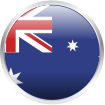Monash University, Bachelor of Engineering (Honours) and Bachelor of Arts, Duration
Monash University (Know about the Institution)
The common first year provides the scientific and design foundations for engineering, focuses on real-life problems so you begin to understand the interaction between engineering and society, and introduces the range of engineering disciplines available to you. You then pursue your specialist engineering discipline from year two.
Add to this, Arts at Monash, which provides your comprehensive gateway to around forty fascinating areas of study across the arts, humanities and social sciences and you will have a portfolio uniquely tailored to meet your interests and aspirations. Combining an engineering degree with an arts degree provides complementary skills in technology and communications.
You will develop the transferable skills employers are looking for: communication, teamwork, research and critical thinking. You will have the flexibility to create a course that's tailored to your academic interests while exploring different career options. Possible areas include communications, safety, regulation, and policy analysis and development.
For more information on this course, you can get in touch with our admission counselors for a detailed discussion and understanding of the requirements. Just share your details and we will reach out to you for a FREE session.
The common first year provides the scientific and design foundations for engineering, focuses on real-life problems so you begin to understand the interaction between engineering and society, and introduces the range of engineering disciplines available to you. You then pursue your specialist engineering discipline from year two.
Add to this, Arts at Monash, which provides your comprehensive gateway to around forty fascinating areas of study across the arts, humanities and social sciences and you will have a portfolio uniquely tailored to meet your interests and aspirations. Combining an engineering degree with an arts degree provides complementary skills in technology and communications.
You will develop the transferable skills employers are looking for: communication, teamwork, research and critical thinking. You will have the flexibility to create a course that's tailored to your academic interests while exploring different career options. Possible areas include communications, safety, regulation, and policy analysis and development.
For more information on this course, you can get in touch with our admission counselors for a detailed discussion and understanding of the requirements. Just share your details and we will reach out to you for a FREE session.
Get free 1-on-1 counselling with our experts
Source : US News






*All the data points mentioned above are approx. figures and has been collated from various sources based on the data of 2019-2020.









